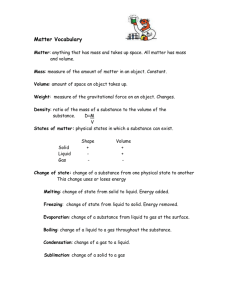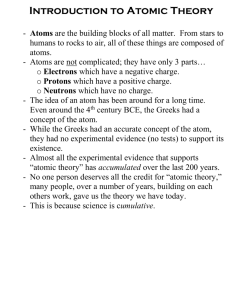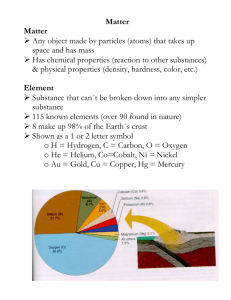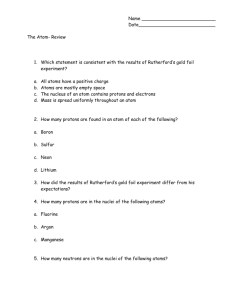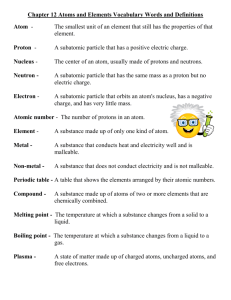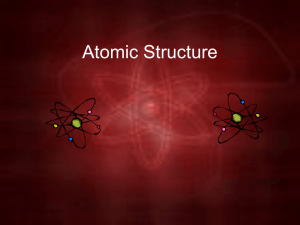Atomic Structure
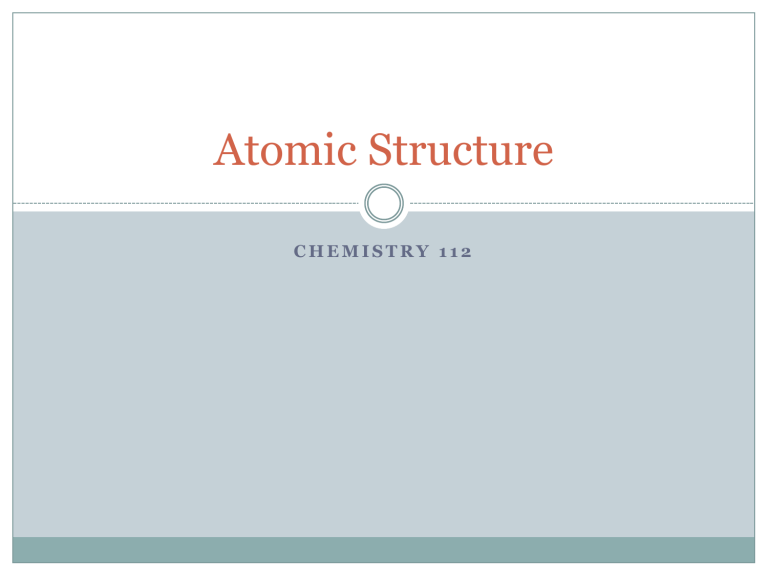
Atomic Structure
C H E M I S T R Y 1 1 2
Early Models of the Atom
An atom is the smallest particle of matter that retains its identity in a chemical reaction
Democritus was an early Greek philosopher who suggested the existence of atoms
He believed they were indivisible and indestructible
John Dalton and Atomic Theory
From experimentation, Dalton was able to devise a set of ideas supporting the idea of the atom
Elements are composed of tiny indivisible particles called atoms
Atoms of the same elements are identical and one element’s atom differ from another
Atoms of different elements can come together to form compounds
Atoms of one element cannot change into atoms of another
A Problem with Dalton
We now know that the atom is divisible
It is composed of subatomic particles
Electrons are negatively charged particles and they are found outside the nucleus in regions called orbitals
Protons are positively charged and found in the nucleus of an atom with neutrons, which have no charge
There are even smaller particles but we do not study them in introductory chemistry
The Size and Shape of an Atom
The nucleus is found at the core of an atom
It is very dense and positively charged
The region around the nucleus is large and mostly empty space
Although all three subatomic particles are small, the electron is 1/1840 the size of a proton/neutron
Table 4.1, page 108
Atomic Number
Elements are different from one another because they contain different numbers of protons
The atomic number = number of protons
In atoms, the number of proton = number of electron
Therefore, an atom is electrically neutral
Mass Number
The mass number is the number of protons added to the number of neutrons
The number of neutrons can vary from one atom to the next within one sample of an element
Such atoms are called isotopes of an element and have differing mass numbers – they are still, however, chemically alike because their p+ and ecount are equivalent to one another
Isotopes
There is a certain method used for naming and writing isotopes
